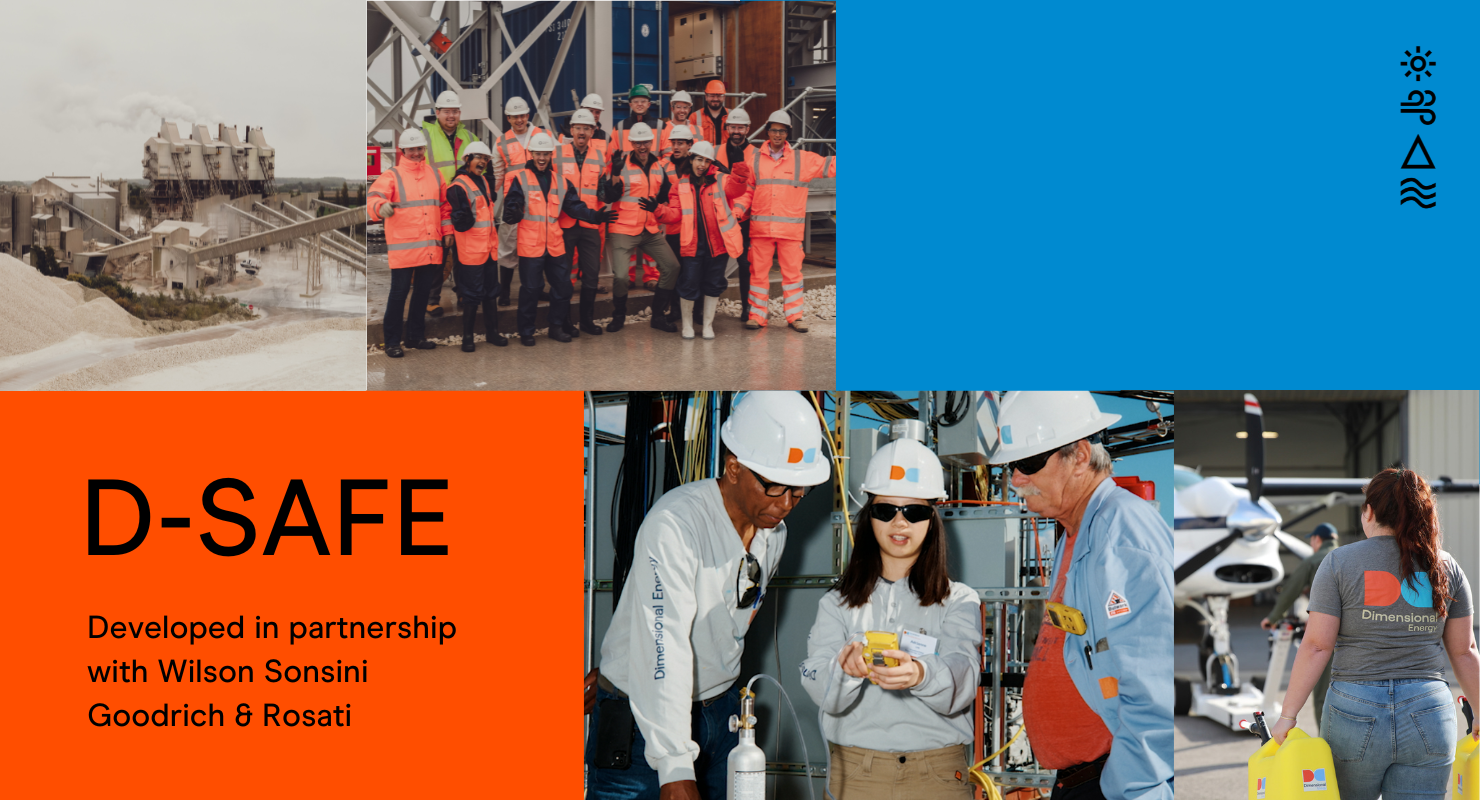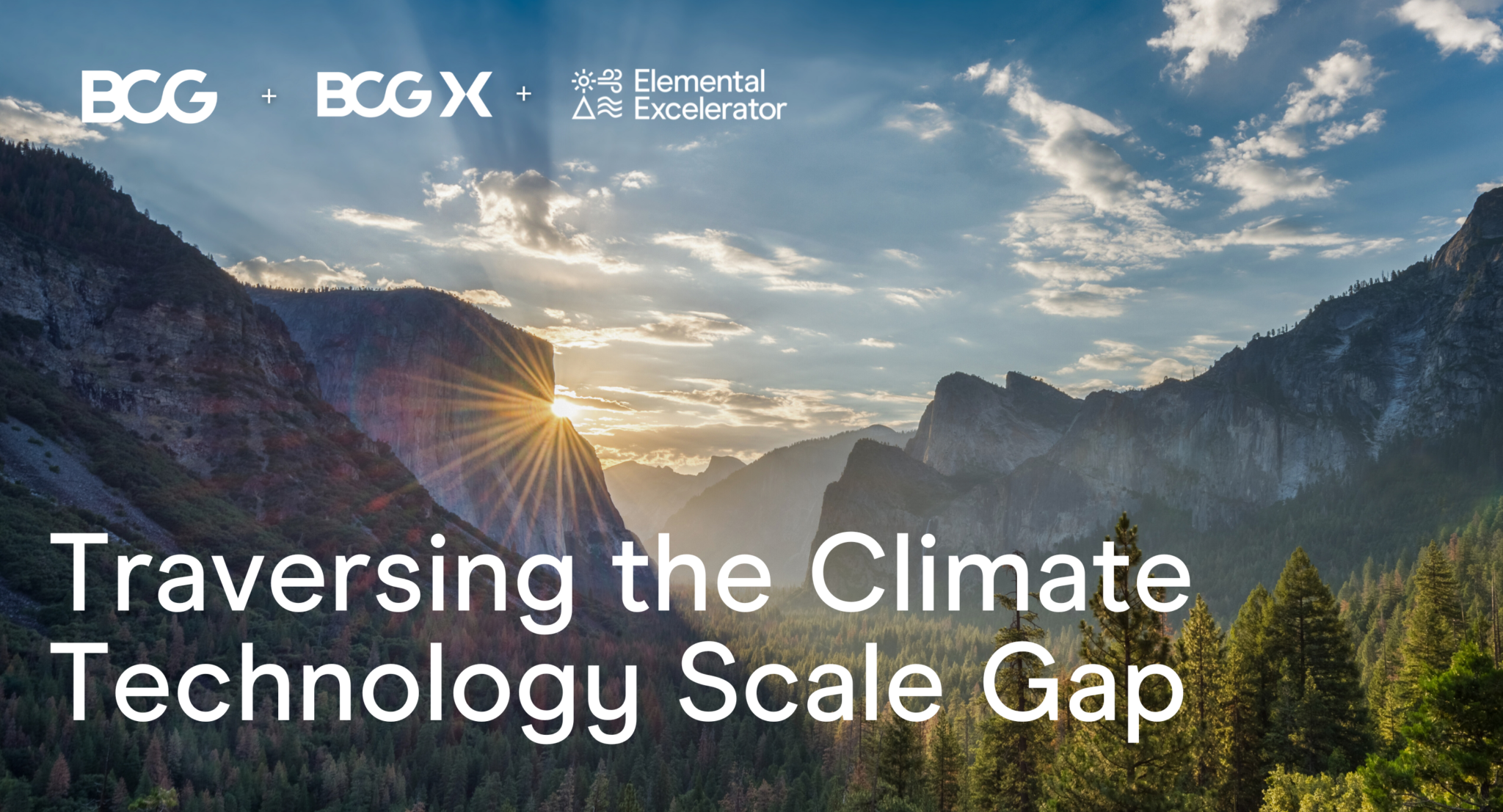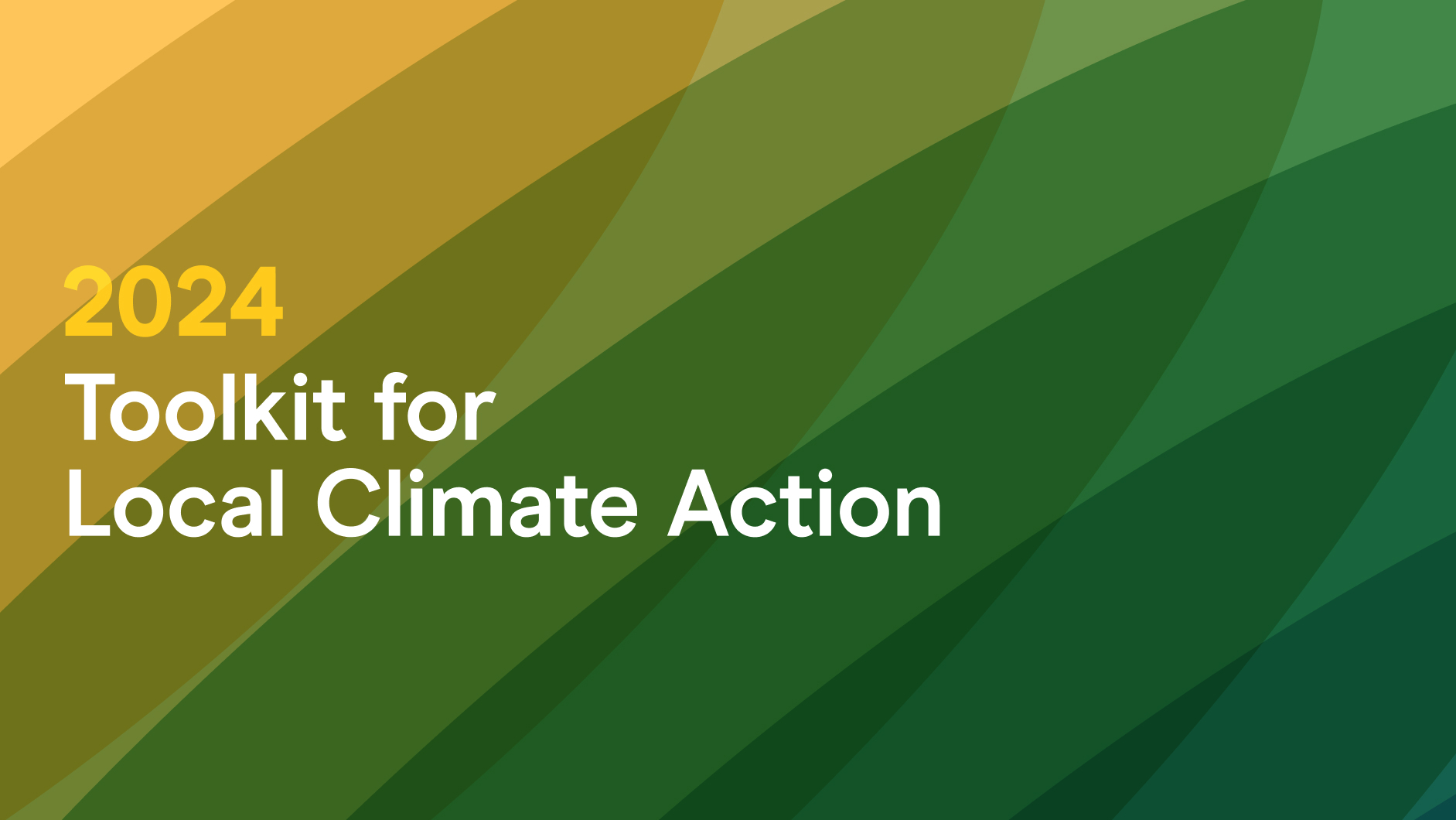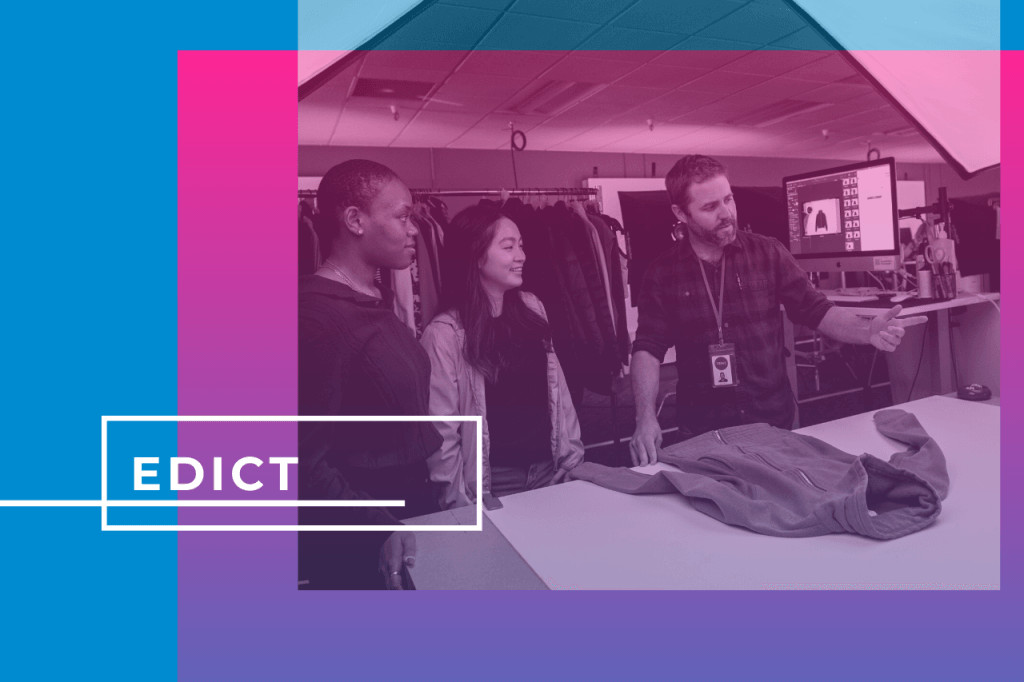
Like many people, my first summer college internship changed my life. I had a single mom and my loans were my own, so I couldn’t afford not to work. After applying to numerous employers, I got only two offers. It took me all of 5 minutes to pick the $22/hour government internship over the $10/hr option from the design firm of my dreams.
What was most striking that summer was the weight of being the youngest intern in my cohort and the very first black female intern the program had ever accepted. But in hindsight, I realize that internship was absolutely transformational for my whole career trajectory, earning power, professional network, and personal growth.
This is why EDICT — Elemental’s intern program designed to create a diverse pipeline of talent and empower climate organizations in creating inclusive cultures — is so dear to my heart. It addresses not only the challenge of getting your foot in the door for students, but also the unique cocktail of loneliness and pressure to represent as the first and only that so many students experience.
As the program gears up for its second summer, I spoke with Sara Chandler, Elemental’s Managing Director of Equity & Access, and Antoinette West, Elemental’s new Career Pathway Manager. Among many other things, we talked about what’s new for EDICT this year and how the growing program empowers a symbiotic relationship between interns and employers in the climate ecosystem to create a more diverse and inclusive environment.
Danielle: Ok help me out here, ladies — what does EDICT stand for?
Sara: It formerly stood for “empowering diversity in climate tech” but we opened the program to more types of employers and now it stands for “empowering diverse climate talent.” When Devin Hampton and Jason Michaels, two entrepreneurs in Elemental’s portfolio who created EDICT in 2020, handed us the program to support diversity in climate tech, their mission was to empower the climate tech sector to acknowledge the exclusivity and be a sector that actively hires diverse talent. In addition, they knew it would require a collective effort because there were so many entrepreneurs like themselves who signed onto the pledge instantly and were asking, “How do we foster a stronger pipeline of talent for our ecosystem, including startups like us?” And we quickly learned that a lot of startups were looking to diversify their teams, but had that same challenge of finding diverse talent.
Devin was a true connector to get this project off the ground. He connected us to Sruti Bharat at FutureMap, who had her own summer program called Dream Green, where she was working with nonprofits, government, and community-based organizations to host interns. It was so mission aligned that we decided to work together on EDICT on the employer program and student executive coaching. Devin also connected us to Clean Energy Leadership Institute, a trailblazer in leadership development to create an intern-centered program that provides education and mentorship that their fellowship program synergistically supports.
Changing the name to include “climate talent” is meant to demonstrate that the program empowers our sector as a whole, and that corporates, government, investors, foundations, nonprofits, CBOs, and startups are all welcome to apply and participate in EDICT.
Danielle: There’s this organic thread of reciprocity within EDICT, where you’re helping people find their passion and their purpose, but also helping an industry evolve so it can make more holistic solutions. Can you share how that mutual benefit played out in the initial development of the program?
Sara: Thank you for that question — I feel so seen! There’s such an important duality to the program, where we’re not just trying to empower students of color. It’s just as much about the employers, and facing that our sector has a lot of work to do to be more inclusive and equitable. And so we need to focus on that while creating community and networking opportunities and growth opportunities for students. You can see that spirit of mutual benefit in the six commitments around equity and justice that make up the EDICT pledge (to build a more diverse, more inclusive, and stronger sector), which employers have to sign if they want to participate.
Another thing that’s been a game changer, we’ve found, is that we used to pay for the host employers’ interns as a given. Now, we ask companies to pay for their own interns’ salaries and apply for financial aid only if they need it. We felt that it was important to place monetary value on the equity work we are offering companies. And that was such an important change, because when people have that skin in the game and are paying for this valuable work they’re passionate about, the engagement is just so much stronger, you have people with real commitments to diversity and inclusion. Creating that strong filter is worth it, because even if we get fewer companies we’ll get people who can really help move the needle.
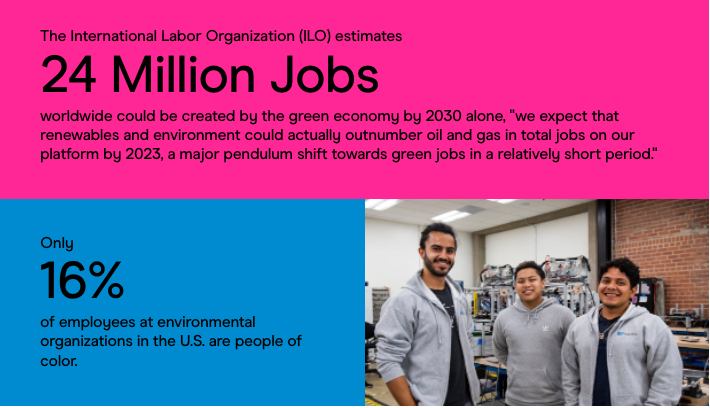
Danielle: Sara, could you speak a little bit to the sliding pay scale you introduced this year? I thought that was a great way to provide access in an equitable way.
Sara: We didn’t want pay to be a barrier for anyone to join in. Last year we had a salary requirement of $25 per hour as a way to remove the barriers for students to join the climate industry. But this year we realized it’s important to be real about where our sector is. Not every employer is able to offer $25 per hour because community-based organizations are underfunded whereas startups, VCs, and corporates can pay more. So this year salaries range from $16 an hour to up to $32 and we offer financial aid to employers. We saw it as an opportunity to show students the breadth of opportunity as well as some of the tradeoffs for different roles, and let them make a choice for which one to apply for. It also gives us a good look at what salaries people are offering, how to think about financial aid, and how to push for pay equity. We hope to have more informed conversations with both students and employers around compensation as the program evolves.
The people who are going to be successful in this industry appreciate and understand that you plant the seed and hope to be able to reap the reward, but regardless, you’re being a good ancestor and your work is making it better for the people who are coming behind you.
Danielle: I love the inclusivity, commitment and idea that everyone regardless of their skillset can have a climate career. I have to admit, I had a not-so-linear path into my own climate career, and think people may wonder — what’s in a climate career that’s not like other careers?
Antoinette: When a lot of people think about green jobs, they think of really technical roles like installing wind turbines or solar panels. Or maybe it’s people with sustainability majors from well-funded schools or technical roles like environmental engineers. But a climate career can really be any career from any school, because regardless of what you’re doing, every business needs people to do marketing, finance, business operations, and so on. We want to show people that there’s this big spectrum of opportunities by connecting the dots around their skills, passions, and abilities.
There’s also an important internal element of why people may want to, for example, do business operations with an environmental organization or climate tech startup. It’s that you’re working on solutions that will impact not only you or your community, but upcoming generations. For people who are looking for more meaningful work that’s more aligned to their core values, or people who are thinking generationally and want to make an impact that far outlasts them living on this planet, there’s a real draw to figure out how they can use their skills, interests, and passions to — and I know it sounds corny — make the world a better place. This sector is such an awesome place to bring people in and say, “You can be an accountant, and your work is going to directly impact our planet in a positive way.” If you’re just working at an accounting firm, you may not feel that way. So that’s a real draw, and I think one of the strategies around retaining people in this sector is that you can work across the career spectrum and be impactful.
Danielle: Antoinette, how did your own journey into working on climate with EDICT unfold?
Antoinette: I come from a nonprofit/education background, where I worked with high school and middle school students at Denver Public Schools Office of Career and College Success. I would talk to students and learn about what they wanted to do and what they were passionate about. Our role was to encourage them, affirm that they could be anything and the world is their oyster. It’s not that I don’t believe that, but at a certain point, I got to thinking — is there going to be a world for these kids to thrive in? Are they going to have clean water or clean air? Are they going to be able to own a home? Are they going to be able to go outside without their skin boiling? In what kind of future are we telling them that they can do anything and be anything?
There’s just this really beautiful, generational aspect to the work that we do.
So I got really interested in figuring out how I can use my skill set and my passion to make a difference. I may not be an engineer or think up the best tech for carbon removal, but what I can do is lend my talent in program design and implementation and partnership development. So I think there are a lot of pivoters who have yet to realize the impact they can make within this sector and might feel intimidated because they are not engineers or wind turbine technicians. I want them to know that the climate field is broad enough for people who are interdisciplinary, who are generalists, who have experience in multiple industries. Just look at all the work Elemental does — we have equity & access, career pathways, community partnerships, communications, policy, all on top of a really strong tech accelerator. There are so many roles and opportunities that you may not think of as being in the climate tech or environmental sector that are available right now! As this industry grows, there is going to be more and more opportunity across the spectrum from trades, to business operations, to technical roles, and I’m excited to show people how they can leverage their background to make an impact today and for future generations.
Danielle: I super appreciate that long-term vision for EDICT, and how it can benefit not just the person moving into a climate career but also their children or children’s children in ways they may not even see in their lifetime.
Antoinette: There’s just this really beautiful, generational aspect to the work that we do. One of my favorite quotes is from Jonas Salk, who created the polio vaccine. He said, “Our greatest responsibility is to be good ancestors.” I don’t remember when I first heard that, but it just struck me as yep, I’m adopting that into my core values. We have a responsibility to think about how we move, what we do, what we don’t do, and how that impacts us and the generations to come.
The EDICT program can have a generational impact in that our focus is to bring traditionally excluded groups into this sector. If you’re a Black or indigenous person of color, if you’re a part of the LGBTQ+ community, if you’re a woman or gender nonconforming, if you’re low income, if you’re a part of a community that has been impacted by climate change, there’s a place for you here. And if EDICT opens a door to a career opportunity in a growing industry for you, that can lead to more earning potential, which could lead to homeownership and wealth activation that can impact you, your current family, and your future family.
Another piece is that the solutions that a lot of startups or organizations in this space are working on are long term. It didn’t take a day to get into this climate crisis, so it’s not going to take a day to get out of it. You don’t just work on it for a week — you are invested and committed and you iterate and try over and over again. The people who are going to be successful in this industry appreciate and understand that you plant the seed and hope to be able to reap the reward, but regardless, you’re being a good ancestor and your work is making it better for the people who are coming behind you.
Danielle: Switching gears a bit, the retention issue is such an important one, and there’s a big evolution to focus on the “inclusion” piece of the DEI movement. Can you share how EDICT specifically addresses inclusion?
Antoinette: I see the climate tech space as kind of an extension of STEM. Over the past 10 years the equity push in STEM acknowledged that kids of color may not have known someone who works in a STEM field and may not have felt comfortable pursuing a STEM career because it’s primarily what you see your parents or people around the neighborhood do that shapes what you know about different careers. So the STEM field has done a lot of work on exposure and now many students of color can say they know someone who looks like them is in this industry.
At the same time, while a lot of that strategy was based on recruitment and getting people of color in the door, a lot of these companies didn’t have high retention because of a toxic workplace, or not being inclusive, or people not having psychological or even physical safety. So the diversity strategy wasn’t really that strong, because it just stopped at recruitment.
What’s really special about what Elemental and EDICT are doing is that yes, we have this internship opportunity for people to get a foot in the door and get really strong experience that we hope that they can leverage for future career opportunities. But also, it’s an opportunity for a lot of the companies and organizations that we work with to continue to practice what they preach in community with other employers. And to think about, what does it mean to have an inclusive environment? What does it look like to have opportunities for leadership? What does it mean to continually have the sector become more diverse in a way that’s sustainable? How do we get to the point where it’s not this radical thing to have a diverse workforce — it’s just expected.
Danielle: Ok, last question. How does this scale? You’ve achieved some pretty astounding numbers for your second run at this with over 81% of applicants with a Latinx, Black, Native Hawaiian and/or Southeast Asian background; nearly two thirds of applicants being women; all while more than doubling your target applicant number with over 500+ applicants. With so much demand and Elemental’s 5-year strategy goal of launching 10,000 climate careers, does EDICT just open the flood gates?
Sara: The exciting thing about EDICT is we’re just getting started when it comes to creating a meaningful experience for folks who participate, and at the same time, we have this new opportunity to partner with those who have made our career pathways work meaningful for us to date, like our colleagues and partners in Hawaii where our career pathways work began. We’ve got one alumni group and one current group of employers and interns, and we’re thinking about how to make it a strong network that people can rely on. We’ll continue to partner deeply with CELI and FutureMap to scale the program while maintaining that quality. Because we’ve built this program together at every step of the way, and want to continue breaking down silos and amplifying each other’s work.
Antoinette: I really love that we shifted the program language from “climate tech” to “climate talent.” It gives us a lot more breadth to think about how we’re bringing in people from different places on their career journey. It’s difficult to compare a rising freshman to a first-year grad student or someone who’s pivoting into a second career. Is there a way that we can tailor our programs to better support what they’ll each need in their career journey?
There’s so much opportunity here if we can make it accessible and known for traditionally excluded folks early in their careers, that you do have the skills, you do have the education, you do have the knowledge to be successful here. And we want you here.
• • •
Stay tuned for more about EDICT by subscribing to our newsletter.






